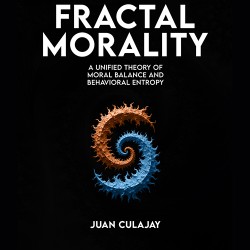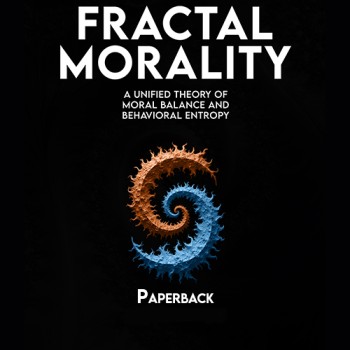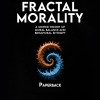Fractal Morality

Fractal Morality reimagines ethics as a living system, not rigid rules. Drawing on fractals, entropy, and evolution, it introduces the Moral Equation—a framework that measures how choices ripple outward, creating harmony or disruption across personal, social, and cultural scales.
Here, entropy is redefined as the process that brings a system to equilibrium—a harmonizing force, not a descent into chaos. Within this system:
-
Sin is Disrupture—a fracture in the moral pattern, an entropy spike that breaks harmony. Example: lying to protect someone creates Disrupture, but the intent still leans toward harmony.
-
Evil is Conscious Chaos—worse than Disrupture, it is the deliberate use of intent to magnify entropy and weaponize disorder. Example: lying to defame or destroy someone is Conscious Chaos—entropy sharpened with malice.
Through vivid imagery and clear reasoning, Juan Culajay shows how:
-
Personal choices act as entropy spikes—Disrupture (sin) or harmony (integrity).
-
Social systems—from echo chambers to ideologies—behave like moral fractals.
-
Forgiveness functions as a reset, restoring balance.
-
AI, culture, and the universe itself can be seen as moral algorithms.
If you’ve ever felt that ethics is bigger than rules or dogma, Fractal Morality offers a groundbreaking lens: Observe. Recurse. Harmonize.


